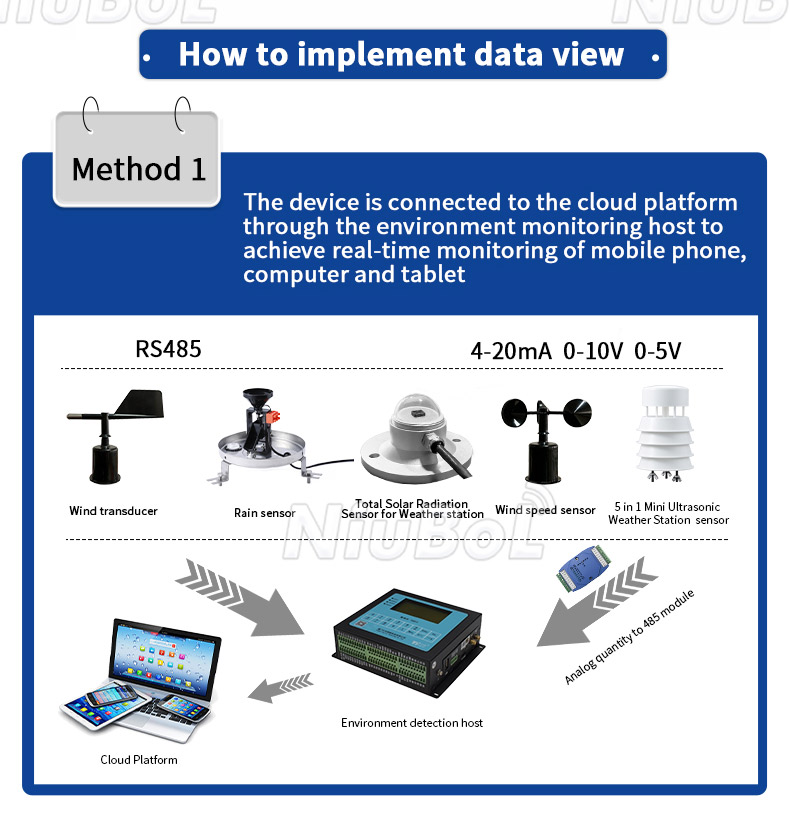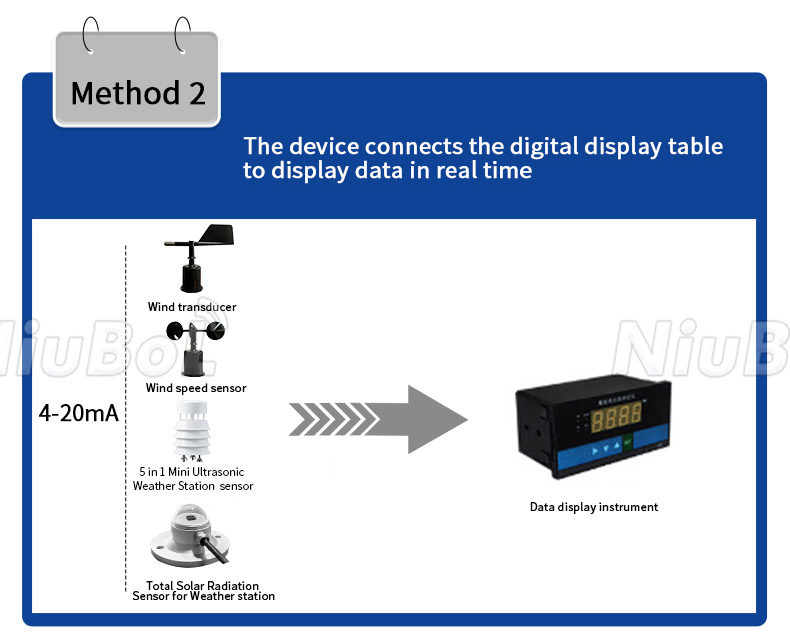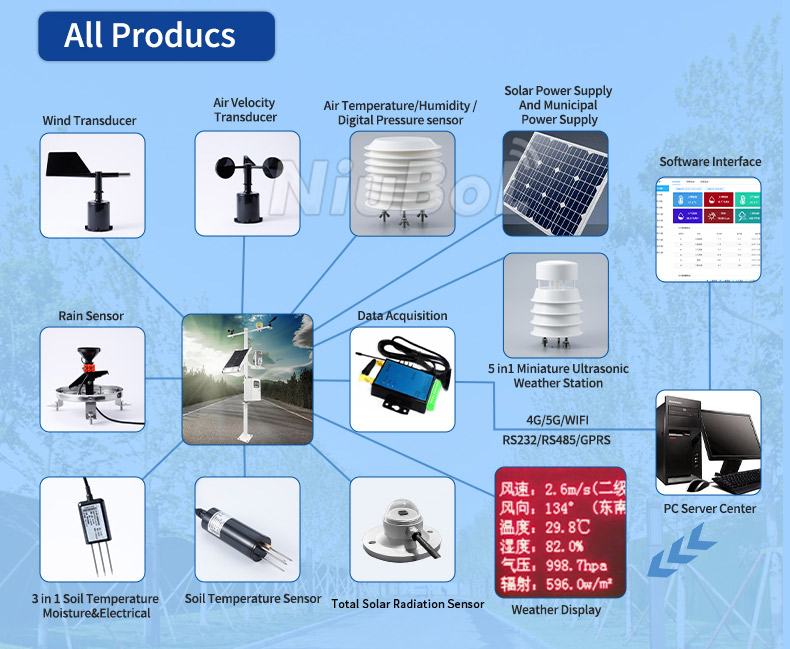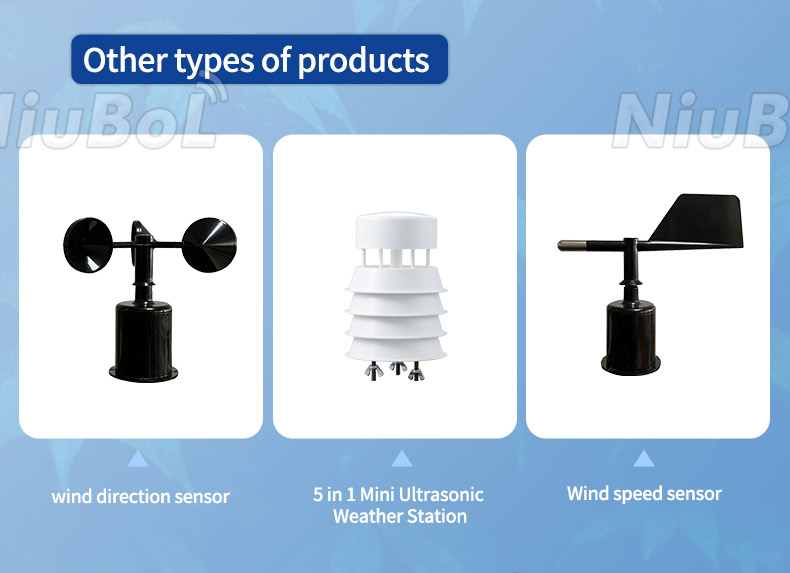

— Products —
 Consumer hotline +8618073152920
Consumer hotline +8618073152920 WhatsApp:+8615367865107
Address:Room 102, District D, Houhu Industrial Park, Yuelu District, Changsha City, Hunan Province, China
All products
A photosynthetically active radiation (PAR) meter is an instrument used to measure the amount of PAR available for photosynthesis in the atmosphere or in a controlled environment such as a greenhouse. PAR refers to the portion of sunlight that is within the spectral range most effectively used by plants for photosynthesis, typically between 400 and 700 nanometers (nm).
Tel/WhatsApp:+8615367865107
Email:Arvin@niubol.com +Nearly 100 partner company in more than 68 countries. We are committed to providing high-quality, practical products to meet your needs and help you solve problems.Product Details
Photosynthetically active radiation meter:
Photosynthetically active radiation meter(PAR Sensor) also known as the number of light quantum,is mainly used to measure the photosynthetic effective radiation of natural light in the wavelength range from 400 to 700 nm,and it is easy to use, which can be directly connected with digital voltmeters or data collectors and can be used under all-weather conditions.
It is easy installation and can work continuously in all weathers. When there is sunlight, voltage output proportional to incident light intensity will be generated by the Silicon photodetector in the sensor. Its sensitivity is proportional to the cosine of incident light direct angle. Each product is with one sensitivity coefficient respectively.It can directly output radiation value in unit of μ*mol/m2*s.
Photosynthetic Active Radiation Sensor(PAR Sensor) is widely used in the study of agricultural meteorology and crop growth.

Photosynthetically active radiation meter(PAR Sensor) Product Description:
This par sensor can be used alone for outdoor monitoring of radiation driving photosynthesis, or it can be used with a fixed weather station. Get accurate and cost-effective measurements of photosynthetically active radiation (PAR) from all light sources used to grow plants.
Photosynthetically active radiation sensors are designed to measure light intensity at frequencies associated with photosynthesis. This par sensor has a measurement range of 0 to 2000 W/m2 and a wavelength range of 400 to 700 nm.
All aluminum shell material, good waterproof, can be used outdoor for long-term monitoring. Provide you with RS485/0-5V and other signal output methods.




A photosynthetically active radiation (PAR) meter is an instrument used to measure the amount of PAR available for photosynthesis in the atmosphere or in a controlled environment such as a greenhouse. PAR refers to the portion of sunlight that is within the spectral range most effectively used by plants for photosynthesis, typically between 400 and 700 nanometers (nm).
The PAR meter works by detecting the intensity of light in the PAR spectrum. It may use a variety of technologies, including photodiodes or photomultiplier tubes, that are sensitive to light in the visible spectrum. Some meters have a spectroradiometer, which measures the light across the entire visible spectrum, allowing for the calculation of PAR from the measured data.
The importance of PAR in plant growth and development cannot be overstated. It is the primary source of energy for photosynthesis, the process by which plants convert sunlight, water, and carbon dioxide into glucose and oxygen. Insufficient PAR can lead to stunted growth, while excessive PAR can cause photoinhibition, a condition where the plant's photosynthetic apparatus is damaged by excessive light.
PAR meters are essential tools for researchers, agronomists, and plant biologists, as they help in understanding the light environment that plants are exposed to and how this affects their growth and productivity. They are also used in the design of artificial lighting systems for indoor agriculture, such as vertical farming, to ensure that plants receive the optimal amount of light for healthy growth.
In addition to scientific research, PAR meters can also be used in practical applications, such as optimizing the placement and density of plants in a field or garden to maximize light interception and photosynthesis, or in the design of greenhouses to ensure that the lighting conditions promote efficient plant growth.
The Photosynthetic Active Radiation Sensor (PAR sensor) adopts the principle of photoelectric induction. The par sensor working principle: when there is light, a voltage signal proportional to the intensity of the incident radiation is generated, and its sensitivity is proportional to the cosine of the direct angle of the incident light.
This par sensor uses high-precision photoelectric sensing elements, with high absorption in the 400-700nm spectral range and good stability. The shell adopts special treatment to reduce dust adsorption and effectively prevent the external environment from damaging the internal components.
High accuracy
The built-in sensor adopts high-precision photoelectric sensing element, which has high spectral responsivity and sensitive response to the spectrum of 400~700nm. A high-quality cosine corrector is used to ensure a standard cosine response, which greatly reduces the measurement error.
Long using life
The overall housing of the NiuBoL PAR sensor is made of a special aluminum alloy that will not accumulate dust and rain. This keeps the sensor clean and minimizes errors caused by dust blocking the radiation path. It can also work normally in harsh environments.
Remote monitoring
The par sensor can be connected to the customer’s own data device. Easily access data remotely, so you can view data through computer/APP anytime, anywhere. Accurate indoor/outdoor PAR measurement.
Sensors & Weather Stations Catalog
Agriculture Sensors and Weather Stations Catalog-NiuBoL.pdf
Weather Stations Catalog-NiuBoL.pdf
Related recommendations
 Multi-Depth Soil Sensor RS485
Multi-Depth Soil Sensor RS485 TDR Soil Moisture Sensor
TDR Soil Moisture Sensor Pyranometer Solar Radiation Sensors
Pyranometer Solar Radiation Sensors Soil ph sensor
Soil ph sensor Tipping Bucket Rain Gauge
Tipping Bucket Rain Gauge Air Temperature and Humidity Sensor
Air Temperature and Humidity Sensor
Screenshot, WhatsApp to identify the QR code
WhatsApp number:+8615367865107
(Click on WhatsApp to copy and add friends)